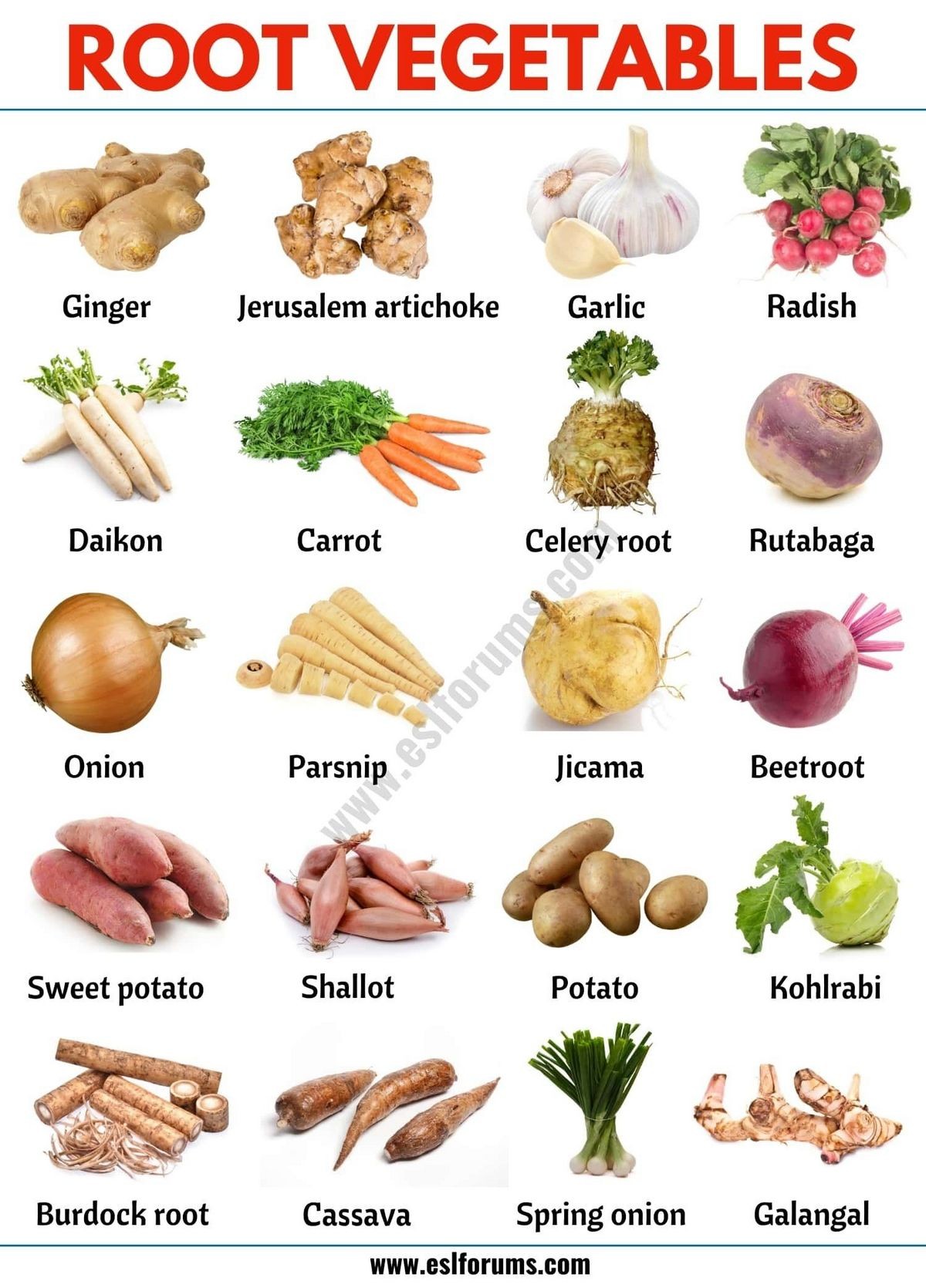
Contents
The 13 Healthiest Root Vegetables
These are the 13 healthiest root vegetables to add to your diet due to their rich vitamin content, polyphenols, and beneficial effects on health.
Root vegetables are starchy vegetables that grow in the soil.
The starchy portion, also called the storage organ, of root vegetables grows underground, while the rest of the plant receives nutrients from it to continue developing.
Discover the 13 healthiest root vegetables below.
13 healthiest root vegetables
- Sweet potato
- A cup of cooked sweet potatoes contains:
- 769% of the recommended daily intake of vitamin A
- 65% of the recommended daily intake of vitamin C
- 50% of the recommended daily intake of manganese
- Sweet potatoes are high in fiber and antioxidants, such as copper, niacin, pantothenic acid, anthocyanins, and beta carotene. They may benefit digestion, cancer prevention, free radical protection, vision, immunity, and brain health. They are versatile in cooking and pair well with sweet and savory dishes.
- Turnip
- Turnips are cruciferous vegetables that contain potassium, calcium, and magnesium, which have been shown to reduce triglycerides, cholesterol, and blood pressure levels and promote heart health.
- They support digestive health, strengthen the immune system, and provide phytonutrients and indoles that help prevent cancer. They can be eaten raw or cooked.
- Beets
- Beets are rich in fiber, antioxidants, nitrates, manganese, folate, and other nutrients.
- Nitrates in beets improve lung function, lower blood pressure, reduce inflammation, and aid in muscle repair. They are also beneficial for hemoglobin increase and can be consumed in various ways.
- Radishes
- Radishes are low-carb root vegetables that are nutrient-rich and support overall health.
- They are high in vitamin C and have trace amounts of other minerals. They promote digestive health, prevent gastric ulcers, combat Candida albicans, and can be used in salads or sandwiches.
- Onions
- Onions are high in vitamins, minerals, antioxidants, and flavonoid antioxidants that have numerous health benefits.
- They can help prevent heart disease, diabetes-related problems, and certain cancers. Onions also have sulfur-containing chemicals that inhibit tumor growth, improve bone density, lower blood sugar levels, and fight infections.
- Garlic
- Garlic strengthens the immune system, prevents infections, and lowers blood sugar, pressure, and cholesterol levels.
- It has allium, an active component that provides antibacterial, antifungal, antiviral, and anticancer properties.
- Carrots
- Carrots contain beta-carotene, potassium, magnesium, and vitamins A, C, E, and K.
- They promote heart health, reduce cancer risk, improve vision, and provide high fiber content for digestive health. They also lower the risk of age-related diseases.
- Celery root
- Celery root is high in vitamin K, fiber, antioxidants, phosphorus, potassium, and vitamins A, C, and B6.
- It provides defense against free radicals, supports digestion, boosts the immune system, and helps maintain bone strength. It can be prepared in various ways.
- Horseradish
- Horseradish has antibacterial, anticancer, and anti-inflammatory properties, and it is rich in vitamins A, C, and K.
- It supports overall well-being, including improving nail, hair, and skin condition and promoting healthy cell growth.
- Rutabaga
- Rutabaga is a turnip-like root vegetable that contains vitamin C, fiber, and nutrients for a balanced diet.
- It supports immune system function, regulates blood sugar levels, and reduces the risk of obesity, heart disease, and colon cancer. It can be prepared in various ways.
- Asparagus
- Asparagus is rich in iron, copper, potassium, and proteins. It promotes circulation and helps lower blood pressure.
- Chicory
- Chicory is rich in vitamins C and E, potassium, and folate. It helps balance hormone levels, reduce inflammation, and promote relaxation.
- Shallots
- Shallots have numerous health benefits, including cholesterol reduction, potential anticancer properties, antifungal, antibacterial, and antiviral defense, blood pressure regulation, diabetes management, nerve calming, enhanced circulation, improved digestion, and weight loss support.


